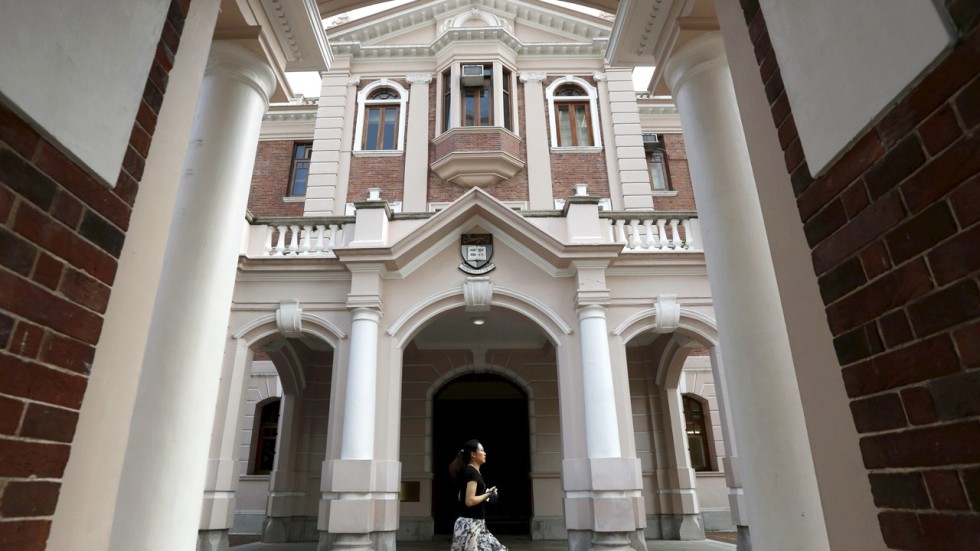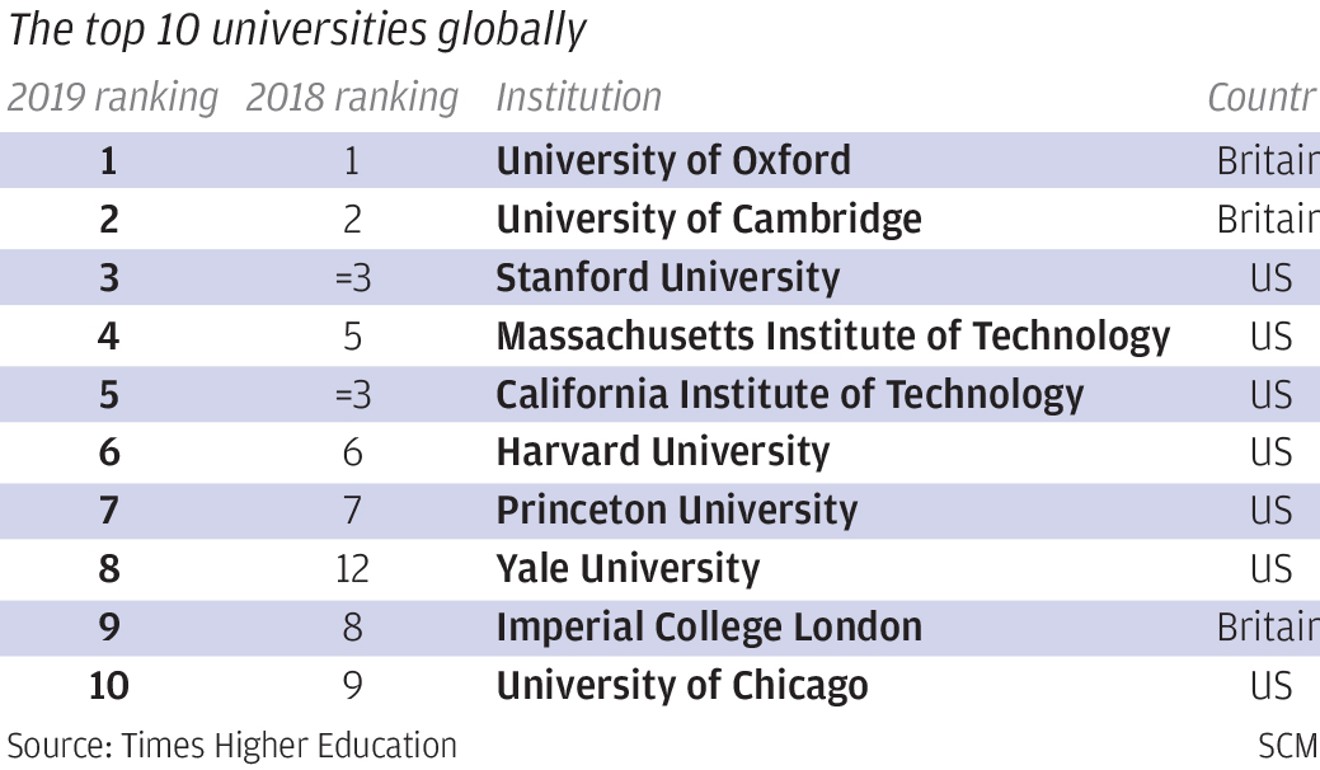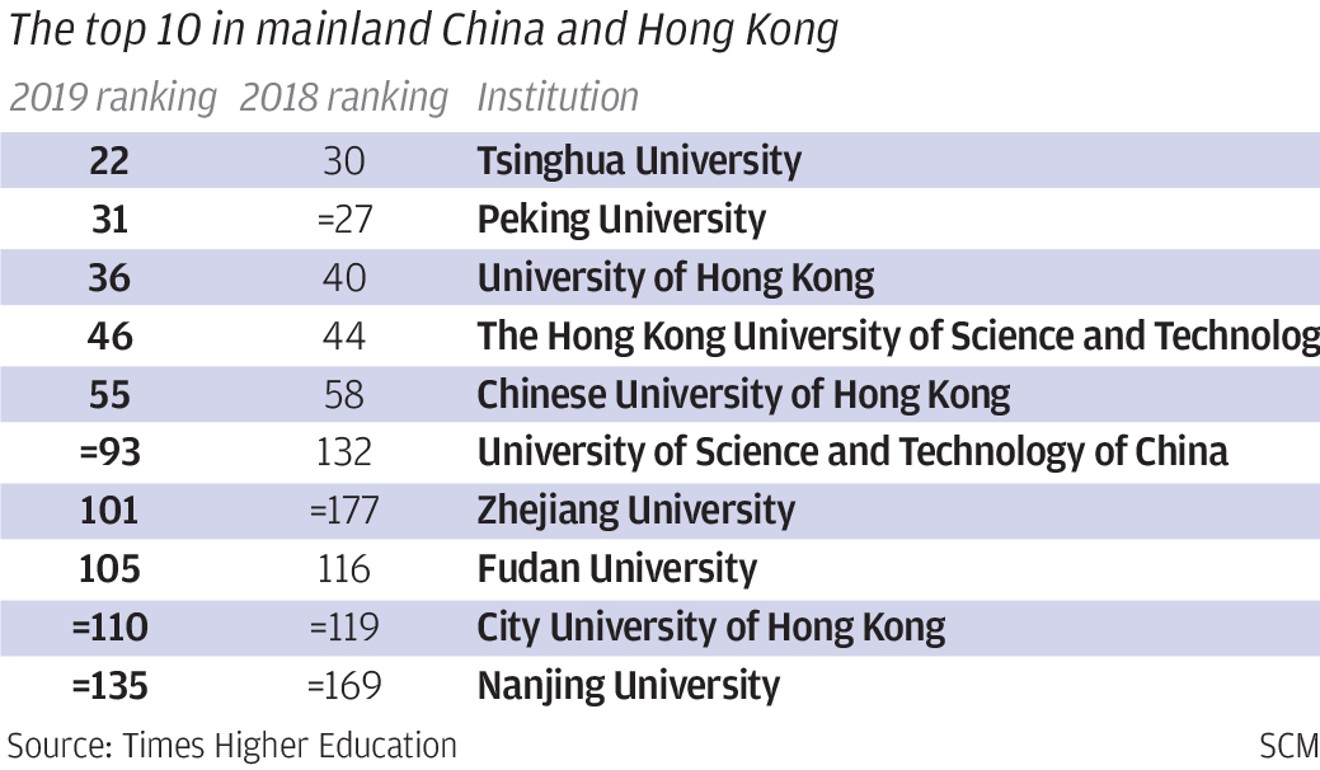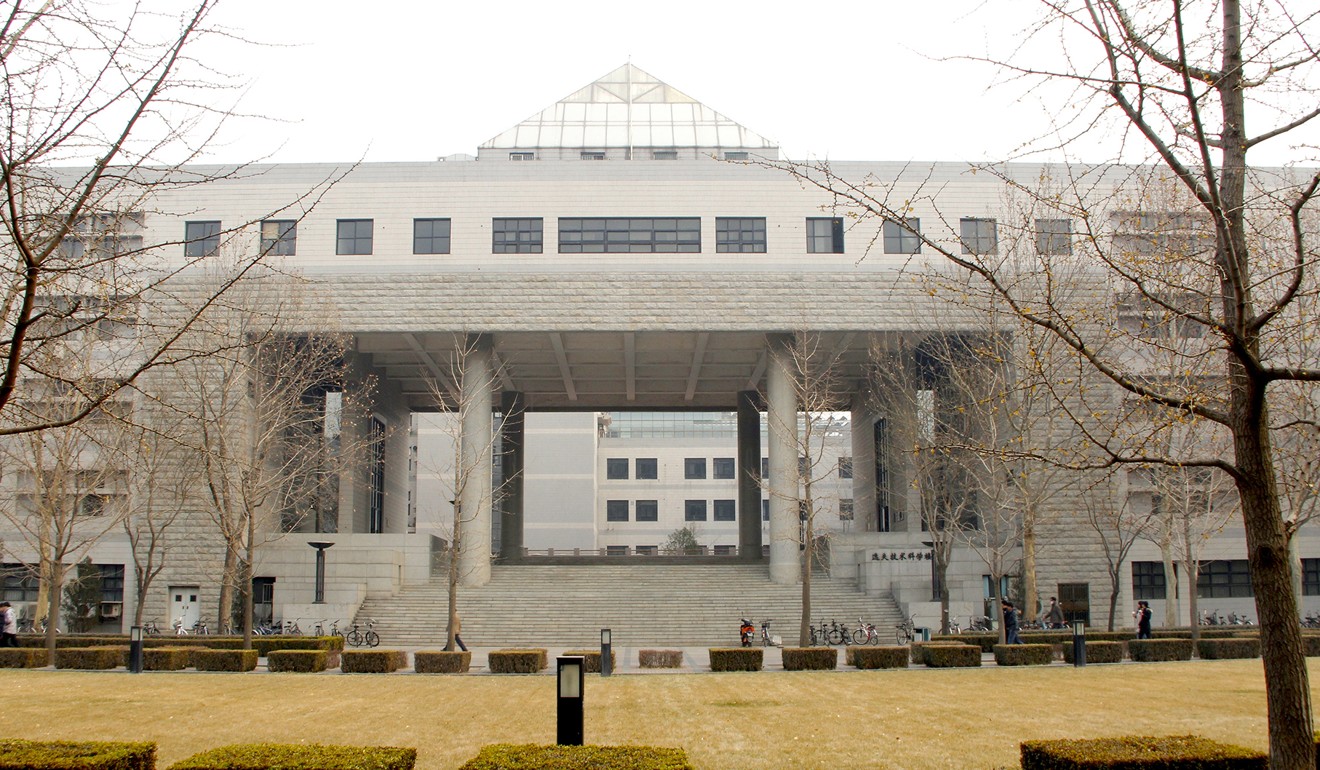
The University of Hong Kong has been ranked 36th in a global league table of tertiary institutions, its best performance in six years, while Tsinghua University in mainland China, ranked 22nd, has pipped the National University of Singapore by one spot to become the best in Asia.
Tsinghua’s strong showing in the Times Higher Education World University Rankings 2019 saw it for the first time surpass Peking University, which was ranked 31st, down from 27th in last year’s list.
Times Higher Education’s editorial director of global rankings Phil Baty said Tsinghua and other mainland universities’ strong showing was testament to “China’s formula for success” by investing in its top schools and attracting the best global talent.

In Hong Kong, Lingnan University’s chair professor of comparative policy Joshua Mok Ka-ho said the Chinese government had invested heavily in improving research rigour and quality through creating more stringent frameworks for projects and bringing back overseas Chinese talent.
“Times Higher Education’s ranking places significant weight on research and reputation. And the Chinese government has been working very strategically in making Tsinghua a top university globally,” Mok said.
HKU attains seven-year high in QS World University Rankings
In Hong Kong, the University of Science and Technology was ranked 46th after slipping two places but three other publicly-funded local universities climbed up the table of more than 1,250 higher education institutions from 86 countries.

Improving research influence, measured by the average number of times a university’s published work is cited by scholars globally, was one of the factors that helped Chinese University rise three places to 55th, City University move up nine spots to 110th and Polytechnic University jump nine places to 173rd.

There were four other sets of indicators used to assess universities, including the quality of teaching and their learning environment, as well as their reputation for research excellence, size of research grants and number of papers published.
Baty praised Hong Kong’s performance despite “intensifying regional and global competition”.
“However, to continue improving, Hong Kong’s universities would be well advised to invest more in growing their industry links and research capacity,” he said.
HKU, which scored well on its ability to attract students and faculty from all over the world and its number of global collaborations, said it would continue to promote cross-cultural exchanges.
“[We will also] increase opportunities for students to gain learning experiences in mainland China and overseas,” said W. John Kao, HKU’s vice-president and pro vice-chancellor (global).
A HKUST spokesman said it would continue to maintain good performance in teaching and research, and collaborate with top universities worldwide.
The ranking was as expected, dominated by universities from Britain and the United States, with Oxford University in first place, Cambridge University in second and Stanford University in third.
But Baty said universities from the US, Europe and Australia were at risk of slipping further as those regions experienced “the effects of deepening cuts and creeping isolationism”.
“Maintaining current standards of excellence on those terms is unsustainable, and – amid mounting global competition – we again see signs of stagnation and modest decline among established strongholds, with individual successes the exception,” he said.







